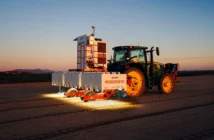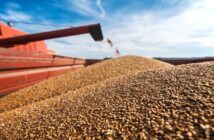The Public Accounts Committee has said that Defra’s IT systems are in need of a ‘complete and co-ordinated overhaul’ to ensure air quality, safe food and water supply.
In its report, the committee said that farmers, vets, scientists and other users find the systems ‘outdated and difficult to use’ and that there was a risk of Defra wasting money due to be spent on IT because it has not made key decisions.
The MPs who were part of the committee, emphasised the importance of the systems used by Defra as they are critical to the country’s trade, disease prevention, flood protection and air quality monitoring. The department still handles around 14 million paper-based transactions per year – an inefficient and expensive method.
Defra’s digital and technology transformation plan was published in 2022 and included IT investment across the department and its largest ‘Arm’s Length Bodies’. But this recent MP report said that Defra does not have a proactive strategy for making the necessary changes to its IT systems, or for reducing paper forms and making applications available on mobile devices.
Sir Geoffrey Clifton-Brown, PAC deputy chair, said: “Defra’s IT systems are so outmoded and disconnected – where they exist at all, instead of paper forms – that in some cases the professionals who keep our food, water and air safe have been forced to buy obsolete equipment just to fill in the forms to fulfil their regulatory responsibilities.
“We are facing down rapidly spreading animal diseases, maybe the next pandemic, with systems that may rely on moving paper forms around. This cannot continue.
“We will also not accept a situation where Defra spends hundreds of millions of taxpayers’ money on a disjointed upgrade programme only to find that it no longer fits the structure of new systems of air quality monitoring, food and clean water supply in this country. It’s time for a complete overhaul at Defra, with a concurrent, pro-active digital strategy that matches every step.”
Defra’s’ response
A Defra spokesperson said: “We have made significant progress on enhancing and improving the resilience of our current technology and digital services through an effective and wide-ranging investment plan.
“We have already delivered new and improved services to improve flood warnings, farming and countryside schemes and food imports and exports, developed with the input of end-users and customers.
“Defra is a wide-reaching organisation, and we are committed to improving the quality and availability of our digital services and ensuring our systems are secure and resilient.”
NPA comment
NPA chief policy adviser Rebecca Veale said the association was concerned about the PAC’s findings. “We believe Defra should address the shortfalls of their IT systems in order to be best placed to respond quickly and robustly to control, and then eradicate any notifiable disease outbreak in this country and undertake the important syndromic surveillance work,” she said.
“The Avian Influenza outbreaks over the last few years have put Defra and APHA under continued strain, and we do question their ability to respond to more than one notifiable disease outbreak at a time given their limited resource – a concern that we as NPA have raised on numerous occasions.
“Our key concern is the risk that African swine fever poses to the British herd given the challenge the disease presents in mainland Europe.
“The digitalisation of the movement licensing process was welcome, but this is a small step and Defra needs more resource to ensure the systems are fit for purpose.”




